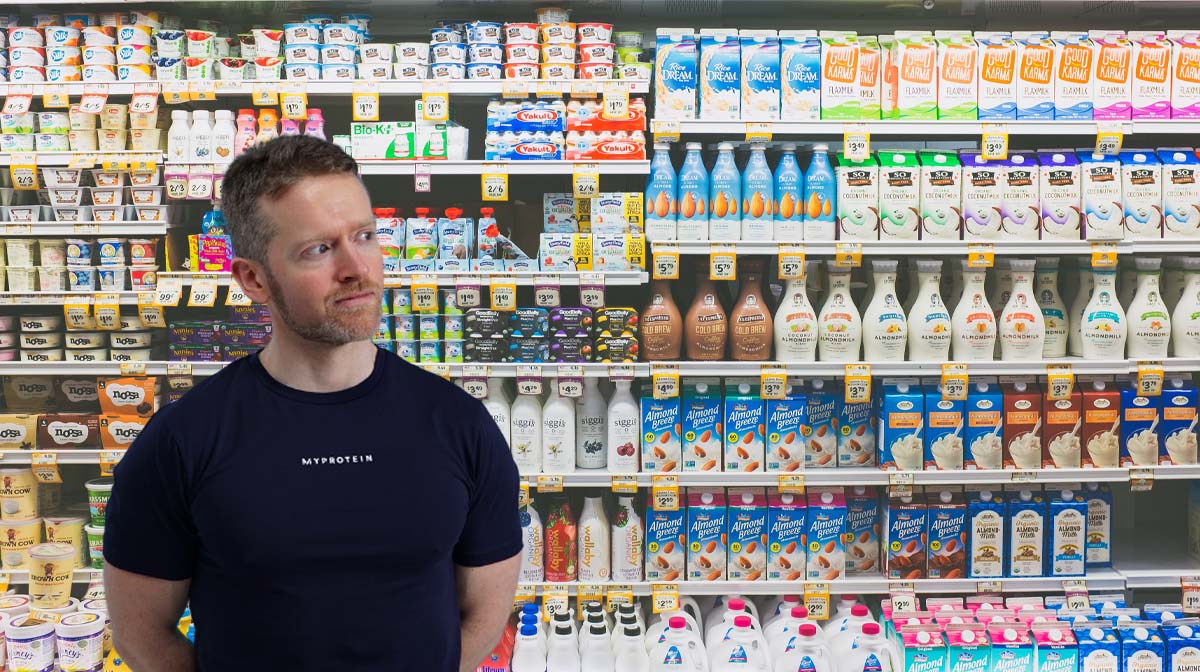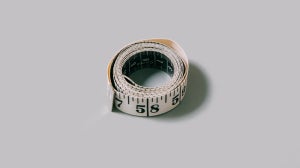
Creatine is one of the most studied supplements and one of the best you can buy when looking to increase muscle mass, strength and power.There are a number of different types of creatine and different methods in which to supplement it but the biggest decision you have to make when supplementing it is whether to follow a loading phase or maintenance.
Jump To:
How to take creatine for a loading phase
Creatine loading is where you take a high dose to maximise your creatine storage as early as possible. This will allow you start making the benefits in the gym earlier – leading to increased long-term progression and improved performance.
A typical strategy for creatine loading would be to take 20g (4x5g) for 5-7 days.1 This will make sure your creatine stores are maximised and you are able to start getting in the extra reps and sets during gym sessions.
Whilst loading will allow you to start making gains earlier, the multiple doses throughout the day can make it less convenient than a maintenance phase.
How to take creatine for a maintenance phase
Increasing creatine storage via a maintenance phase may be more convenient as you only have to take creatine once or twice a day. It may also to help to reduce the reported side effects that a loading phase may cause. These include increased water retention and stomach cramps.2
A maintenance phase will take longer to saturate your creatine storage so it will take longer to start to see a benefit during your training or performance.A typical maintenance dose would 3-6g a day. Supplementing this way will maximise your creatine in approximately 28 days.1
Which type should I take?
One of the most studied forms of creatine is creatine monohydrate and the evidence suggests that are no forms more effective at increasing creatine storage.3 An example of creatine monohydrate is Creapure, which has a 99.99% purity of creatine monohydrate.
Kre-alkyln creatine is creatine with added alkaline powder (e.g., bicarbonate) that changes the pH of the powder. It is claimed that this may make the creatine more effective and safer to use. However, when compared with creatine monohydrate, research shows there is no difference in its ability to increase creatine storage or reduce any potential side effects.4
Creatine ethyl ester is creatine with added ethanol ester that may reduce the water retention experienced and improve the absorption rate. When compared to creatine monohydrate, there is no evidence to show it is more effective at increasing storage or reducing side effects.5
What Is The Best Way to Take Creatine?
For the quickest results, the best way to take creatine would be with a 7-day loading phase (20g/d) to maximise storage, followed by a maintenance phase of 3-5g/d. Both methods will ultimately maximise your creatine storage and allow you to make performance improvements and training gains so the best method will depend on what suits you best.
Consuming creatine around your workout may improve recovery and creatine storage. Evidence shows that creatine may increase the rate at which you replenish glycogen following a heavy workout.6 This in turn will improve rates of recovery.
Post workout creatine ingestion has also been shown reduce muscle damage.7 Additionally, creatine co-ingested with carbohydrate may increase both carbohydrate and creatine storage. Adding creatine to a post workout protein and carbohydrate shake may therefore be the best way to recover whilst simultaneously increasing your creatine stores.8
For a creatine loading phase it is best to distribute in small doses throughout the day to reduce the likelihood of abdominal cramping and other reported side effects. See the creatine comparison table below for a comparison on how to distribute each form of creatine.
Intake Comparison Table
This table will guide you to allow 20g of creatine a day during a loading phase, and 2-6g suring a maintenance phase. Always consult your GP if you have any health conditions and want to start supplementing with creatine.
| Phase | Morning | Afternoon | Evening |
Pre- Workout |
Post- Workout | Daily Total | |
| Creatine Monohydrate Tablets | Loading | 4 tablets | 4 tablets | 4 tablets | 4 tablets | 4 tablets | 20g |
| Maintenance | 3 tablets | 3 tablets | 6g | ||||
| Kre-Alkalyn | Loading | 5 tablets | 5 tablets | 5 tablets | 5 tablets | 5 tablets | 19g |
| Maintenance | 4 tablets | 4 tablets | 6g | ||||
| Creapure Tablets | Loading | 5 tablets | 5 tablets | 5 tablets | 5 tablets | 5 tablets | 18g |
| Maintenance | 4 capsules | 4 capsules | 6g | ||||
| Creatine Ethyl Ester | Loading | 8 tablets | 8 tablets | 8 tablets | 8 tablets | 8 tablets | 20g |
| Maintenance | 6 tablets | 6 tablets | 6g | ||||
| Creatine Powder | Loading | 1 scoop | 1 scoop | 1 scoop | 2 scoops | 2 scoops | 20g |
| Maintenance | 1 scoop | 1 scoop | 6g | ||||
| Creapure Powder | Loading | 1 scoop | 1 scoop | 1 scoop | 2 scoops | 2 scoops | 20g |
| Maintenance | 1 scoop | 1 scoop | 6g |
READ THESE NEXT:

7 Important Nutrition Tips for Bodybuilding
Everything you need to know about nutrition to meet your bodybuilding goals.

Nutritionist Shares 8 Money-Saving Tips For Nutrition On A Budget
Don't waste your money on organic foods...

Why Macro Splits Are Flawed | Nutritionist Explains
Richie spills the tea on macro splits.
Our articles should be used for informational and educational purposes only and are not intended to be taken as medical advice. If you're concerned, consult a health professional before taking dietary supplements or introducing any major changes to your diet.
1. Hultman, E., Soderlund, K., Timmons, J., Cederblad, G. and Greenhaff, P. (1996). “Muscle creatine loading in men.” Journal of Applied Physiology, 81(1), pp.232-237.
2. Tarnopolsky MA. “Caffeine and creatine use in sport.” Ann Nutr Metab. 2010;57 Suppl 2:1-8. doi: 10.1159/000322696. Epub 2011 Feb 22. PMID: 21346331.
3. Buford TW, Kreider RB, Stout JR, Greenwood M, Campbell B, Spano M… Antonio J (2007). “International Society of Sports Nutrition position stand: creatine supplementation and exercise.” Journal of the International Society of Sports Nutrition. 2007. 4:6.
4. Jagim, A.R., Oliver, J.M., Sanchez, A. et al. “A buffered form of creatine does not promote greater changes in muscle creatine content, body composition, or training adaptations than creatine monohydrate.” J Int Soc Sports Nutr 9, 43 (2012).
5. Spillane, M., Schoch, R., Cooke, M. et al. “The effects of creatine ethyl ester supplementation combined with heavy resistance training on body composition, muscle performance, and serum and muscle creatine levels.” J Int Soc Sports Nutr 6, 6 (2009)
6. Nelson AG, et al. “Muscle glycogen supercompensation is enhanced by prior creatine supplementation.” Med Sci Sports Exerc. 2001;33(7):1096–100.
7. Cooke MB, et al. “Creatine supplementation enhances muscle force recovery after eccentrically-induced muscle damage in healthy individuals.” J Int Soc Sports Nutr. 2009;6:13.
8. Steenge GR, Simpson EJ, Greenhaff PL. “Protein- and carbohydrate-induced augmentation of whole body creatine retention in humans.” J Appl Physiol (1985). 2000;89(3):1165–71.








